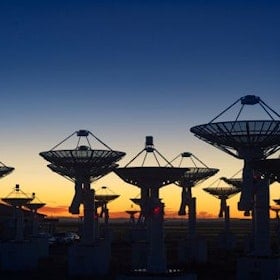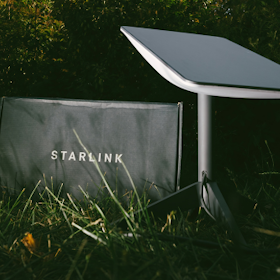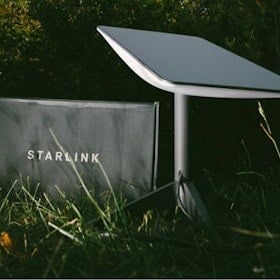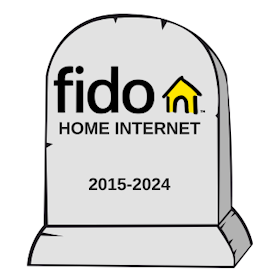
Article Summary
Compared to DSL, cable internet is typically the faster option, however, it is subject to limitations such as slower speed during congested hours. Because cable internet is both fast and reliable, it is well suited for those with higher bandwidth requirements—for things such as gaming, streaming, or large file uploads/downloads. In this article we'll cover the differences between cable internet, DSL, and the ever-expanding fibre internet.
What is Cable Internet?
Similar to cable TV, cable internet uses a coaxial cable to connect to your internet service provider (ISP) via underground cable networks. These cable networks then plug directly into your modem or gateway (combined router and modem), allowing you to create your own WiFi network, or connect directly to your device via ethernet cable.
Cable Internet Pros and Cons
- Fast: Up to 1Gbps
- Reliable
- Relatively simple setup
- Proximity to ISP won't affect connection
- Wide availability
- Speeds may slow during peak hours
- Can be expensive for faster plans
While cable internet offers great reliability and fast speeds, there are some minor, albeit, less than exciting quirks to be aware of when considering this type of internet connection.
First, cable internet is generally a good bit more expensive than DSL service. As the old saying goes “you get what you pay for”—and more often than not, higher speeds equate to higher prices, in addition to greater stability overall when compared to DSL.
Also be aware that speeds tend to suffer a bit during peak hours, as bandwidth is technically shared by subscribers in surrounding residencies. On the bright side, thanks to cable internet’s fast speeds, you’ll still likely be able to achieve more than adequate download or upload speeds for most purposes.
How is Cable Internet Different From DSL?
As mentioned, next to cable internet, DSL is the most widely used form of internet service available. And even though both cable internet and DSL serve identical purposes, the way they go about doing so is a bit different.
Not to be confused with dial-up, DSL—or Digital Subscriber Line—utilizes our landline telephone connections (telephone jacks, specifically) to allow for internet access. And since most of us still have telephone jacks—despite landlines being all but extinct—so long as a DSL provider services your area, you should have a relatively painless experience with having it installed.
The catch, however, regarding DSL is two-fold:
- No telephone jack in your home means a trickier set-up, with an almost-certain need for hole drilling and manual hardwiring
- Proximity to your ISP’s physical location will almost always affect the stability and overall speeds of your internet connection
If neither of the above are concerns for you, DSL may very well be a viable option for you. Keep in mind, though, that DSL speeds are typically much slower than cable internet speeds, with DSL maxing out at around 50Mbps—cable internet speeds max out around 1Gbps (1,000Mbps).
On the plus side, because DSL is a dedicated connection and doesn’t share bandwidth like cable internet’s underground cable network, you won’t be affected during peak hours. It’s also worth mentioning that DSL internet plans are typically much cheaper than cable internet plans.
How is Cable Internet Different From Fibre?
Cable internet is technically a form of hybrid internet connection known as Hybrid Fibre-Coaxial (HFC)—this utilizes both coaxial cable and fibre-optic cable technologies to connect to the internet. HFC is not to be confused with the newer, more impressive dedicated fibre internet connections, which are still not widely available in most parts of the world.
Dedicated fibre internet connections, currently hold claim to the fastest possible interest speeds available, clocking speeds as high as 1.5Gbps in some instances. These speeds allow you to download a 4K resolution feature film in a matter of seconds—something that would take several hours with internet speeds just a few years ago.
The reason fibre internet is so fast comes down to its technology: this type of connection relies solely on fibre optic cables and light pulses to send data, as opposed to DSL and cable internet which use electricity.
As you may have already guessed, fibre is the most expensive of the three internet services we’ve covered—mostly due to the fact that the technology is still fairly new. And as we mentioned above, fibre optic is still only deployed in a sparse collection of regions, so the opportunity to take advantage of the technology is relatively limited (for the time being).
Is Cable Internet Right for Me?
All in all, cable internet is a great option for those of us that live in areas supported by cable ISPs—particularly if you plan on partaking in data-heavy activities, such as gaming, streaming, or large upload/downloads. Fortunately, cable internet is readily available in most locations from providers such as Rogers, Telus, and VMedia. The alternative services—DSL and fibre—serve their own respective purposes, however, fibre is only available in select markets, and DSL is oftentimes much slower than cable internet.
Internet Providers in Canada
| Internet Provider | Offers Cable Internet? | Offers Dedicated Fibre? |
|---|---|---|
| Rogers | Yes | No |
| Telus | No | Yes |
| Bell | No | Yes |
| Shaw | Yes | No |
| VMedia | Yes | No |
| Fido | Yes | No |
| Cogeco | Yes | No |
| TekSavvy | Yes | Yes |
| Videotron | Yes | No |
Related Articles
Find Better Internet and Phone Plans
Hundreds of internet plans unpacked. All the facts. No surprises.
Internet Providers by Provinces and Territories
- Internet in Alberta
- Internet in British Columbia
- Internet in Manitoba
- Internet in New Brunswick
- Internet in Newfoundland and Labrador
- Internet in Northwest Territories
- Internet in Nova Scotia
- Internet in Nunavut
- Internet in Ontario
- Internet in Prince Edward Island
- Internet in Quebec
- Internet in Saskatchewan
- Internet in Yukon Territory











































